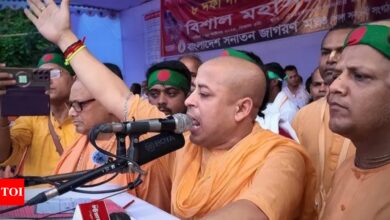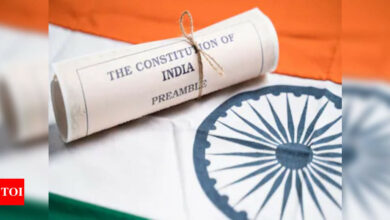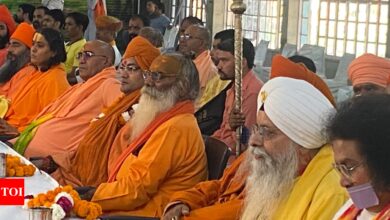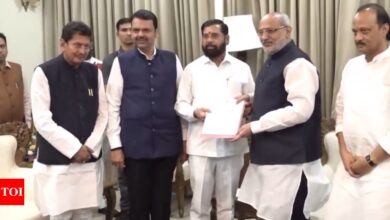India
J&K Assembly passes resolution seeking dialogue with Center on restoration of special status | India News – Times of India
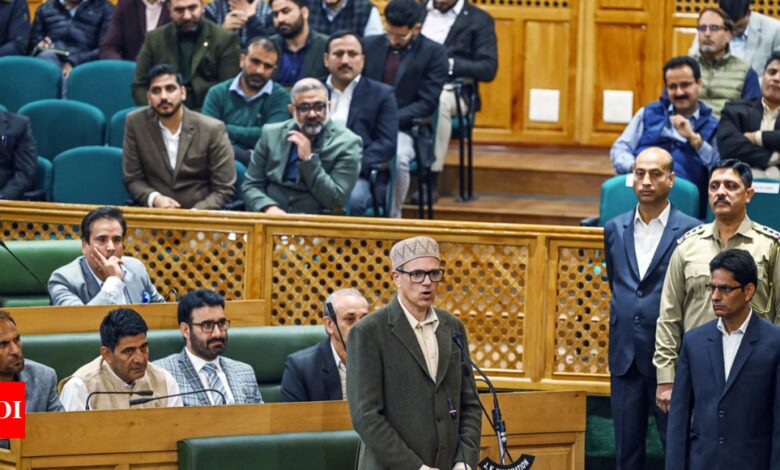
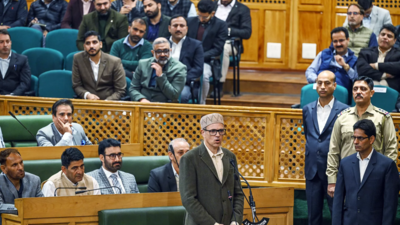

This is a representative image (Image: ANI)
While the resolution reaffirms the importance of J&K’s own identity, culture and rights, Article 370 is not explicitly mentioned.
Deputy CM Surinder Choudhary introduced the resolution amid protests from the 28-member bloc of the BJP. The resolution states: “This meeting calls on the Government of India to initiate a dialogue with elected representatives of the people of J&K for the restoration of a special status, constitutional guaranteesand to work out the constitutional mechanisms to restore these provisions.”
BJP lawmakers protested the timing of the resolution, claiming it violated legislative protocol. Opposition Leader Sunil Sharma accused CM Omar Abdullah’s coalition government of violating the proceedings of the meeting as the day’s agenda was set to discuss the lieutenant governor’s speech. Despite repeated postponements due to the BJP’s protests, Speaker Abdur Rahim Rather put the resolution to vote and it was passed by a majority.
Defending the resolution, CM Abdullah asserted that it was now the Centre’s responsibility to respond to the meeting’s call. NC MP Aga Ruhullah Mehdi emphasized that this move was only a preparatory step: “The struggle will not stop here as today only the doors have been opened by the assembly.”
The resolution received support from lawmakers outside the ruling alliance, including three PDP members, three independents and People’s Conference leader and party MLA Sajad Lone.
However, independent lawmaker and jailed Baramulla MP, engineer Rashid’s brother Sheikh Khursheed of Awami Ittehad Party (AIP), expressed conditional support. “There is no mention of Article 370 or 35A, no reference to the J&K Reorganization Act, 2019, and no commitment to reverse the measures imposed on August 5, 2019,” he said, calling the resolution an incomplete gesture that fell short to expectations. election promises made by NC, PDP and Congress.
The approval of the resolution followed a separate move by PDP lawmaker Waheed Para, who on Monday moved a private member’s resolution calling for the restoration of Article 370. However, the proposal was rejected amid protests from NC and BJP -members.
PDP president and former CM Mehbooba Mufti criticized the NC-backed resolution as “half-hearted” and “without conviction”, saying it should have strongly condemned the abrogation of Article 370.
“Today, PDP has shown that numbers do not matter. A strong opposition can force a majority government to realize the aspirations of the people and fulfill its obligations to the public. This is the result of the PDP’s dedicated efforts,” Mehbooba said, claiming that the PDP’s persistent advocacy led to the introduction of the resolution.
BJP was quick to condemn the move and accused NC of promoting a divisive agenda. “This is a bogus resolution and lacks legal validity,” said opposition leader Sunil Sharma, adding that “no one is above Parliament.”
Parliament abrogated Article 370 on August 5, 2019, ending J&K’s special status and reorganizing the region into two Union Territories – including Ladakh. The Supreme Court later upheld the parliamentary decision.
BJP’s J&K chief Sat Sharma rallied supporters during a protest outside the party office, burning effigies of CM Abdullah and his deputy. “NC Congress has a history of fooling people and the BJP will continue to protest against these nefarious designs,” Sharma said.
Reacting to the intense debate on J&K’s autonomy and protests against the resolution, J&K Congress President Tariq Hameed Karra questioned why dialogue with the Center on constitutional guarantees and statehood should be seen as problematic .

